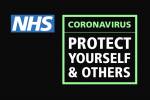Gagan Mohindra MP urges people in South West Hertfordshire to give safely to charities responding to Coronavirus pandemic
Gagan Mohindra MP joins the Charity Commission, the Fundraising Regulator, Action Fraud and Trading Standards to encourage people to give to genuine registered charities as people in South West Hertfordshire respond with generosity in the current crisis.
It comes as regulators receive reports of scammers targeting vulnerable people, for example by posing as fundraisers collecting money for charity, who are diverting vital funds away from genuine causes.
Gagan Mohindra, MP for South West Hertfordshire is urging people to help ensure their donations reach genuine charities responding to the COVID-19 crisis. He said that charities, including those working in South West Hertfordshire are already forming a core part of the nation’s response to the pandemic.
He is encouraging people to support registered charities, at a time when many face an increased demand for their services, such as the National Emergencies Trust (NET) national coronavirus fundraising appeal. The appeal was launched to raise funds for local charities including in South West Hertfordshire responding to the pandemic.
There are 417 charities with a registered address based in South West Hertfordshire and many more national charities that that are dealing with the pandemic and continuing to do important work throughout the country to support vulnerable people and communities. By giving to a registered, regulated charity, people in South West Hertfordshire can have assurance that their funds will be accounted for in line with charity law.
Action Fraud and Trading Standards have received reports of fraudsters seeking to exploit the pandemic by targeting vulnerable people, for example posing as charity volunteers offering to help with shopping, offering fake virus testing, or claiming to be raising funds for charity.
There are simple ways of making sure you give safely to registered charities:
· Check the charity’s name and registration number at gov.uk/checkcharity. Most charities with an annual income of £5,000 or more must be registered.
· Make sure the charity is genuine before giving any financial information – it’s ok to decide not to give on the spot. Be wary of unsolicited emails from charities you have never heard of and be careful when responding to emails or clicking on links within them.
· Exercise the same caution as with any other internet transaction, for example, to donate online, visit the charity’s own website and always type the website address into the browser yourself.
· Contact or find out more online about the charity that you’re seeking to donate to or work with to find out more about their spending. Ask a trusted friend, neighbour or relative if you are unable to research this or need a second opinion.
· Ignore requests to donate through a money transfer company.
· If in doubt about an approach, give to a charity that you have an existing relationship with.
Gagan Mohindra MP, said:
“It has been amazing to see the community spirit, resilience and charitable giving across South West Hertfordshire since this crisis began. The generosity and civic mindedness of the people of South West Herts is one of the elements of the constituency I appreciate most. We are working so hard for each other and that work is paying off. It's important though that we don't get carried away and residents support registered charities helping to relieve those most in need, whilst being vigilant against ‘charity’ scams.”
Baroness Tina Stowell, Chair of the Charity Commission, said:
“British people have a proud tradition of charitable giving and generosity, and this pandemic is already giving rise to that spirit of charity and community that brings people together. We want to ensure that people do so safely and in the most effective way possible so that people in need get help. We encourage everyone wanting to donate money to follow our simple steps to check that they are donating to a registered charity. By giving to a registered charity, the public can have assurance that their funds are regulated by the Charity Commission.
Lord Toby Harris, Chair of the Fundraising Regulator, said:
“Charities are a lifeline to many local communities and play a vital role in supporting people across the UK, particularly at a time of national crisis. In what is the most significant public health emergency in generations, we encourage the public to continue to give generously throughout these difficult times. Unfortunately, we have heard of some individuals who have used the Coronavirus outbreak as a means of defrauding the public, so we urge you to check that an organisation is legitimate before you give to it. For more helpful advice on giving to charity safely, please read our guidance here.”
Louise Baxter, Head of the National Trading Standards Scams Team, said:
“As people stay indoors to prevent the spread of COVID-19, criminals are preying on people in vulnerable situations who are isolated and living alone. The criminals often claim to represent charities to help them appear legitimate before taking the victim’s money. There are genuine charities providing support, so consumers should be vigilant and ask for ID from anyone claiming to represent a charity."

